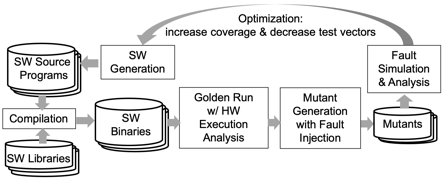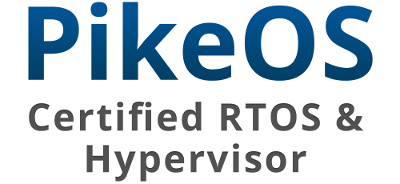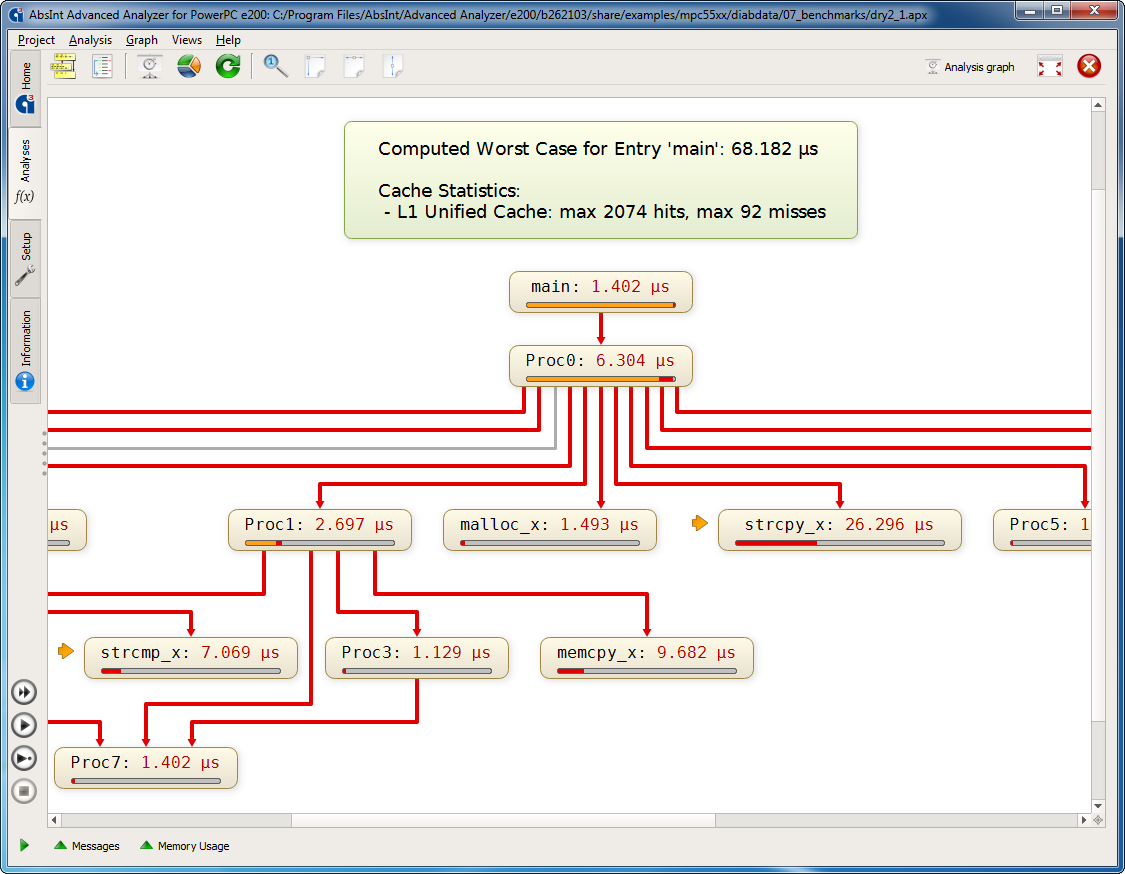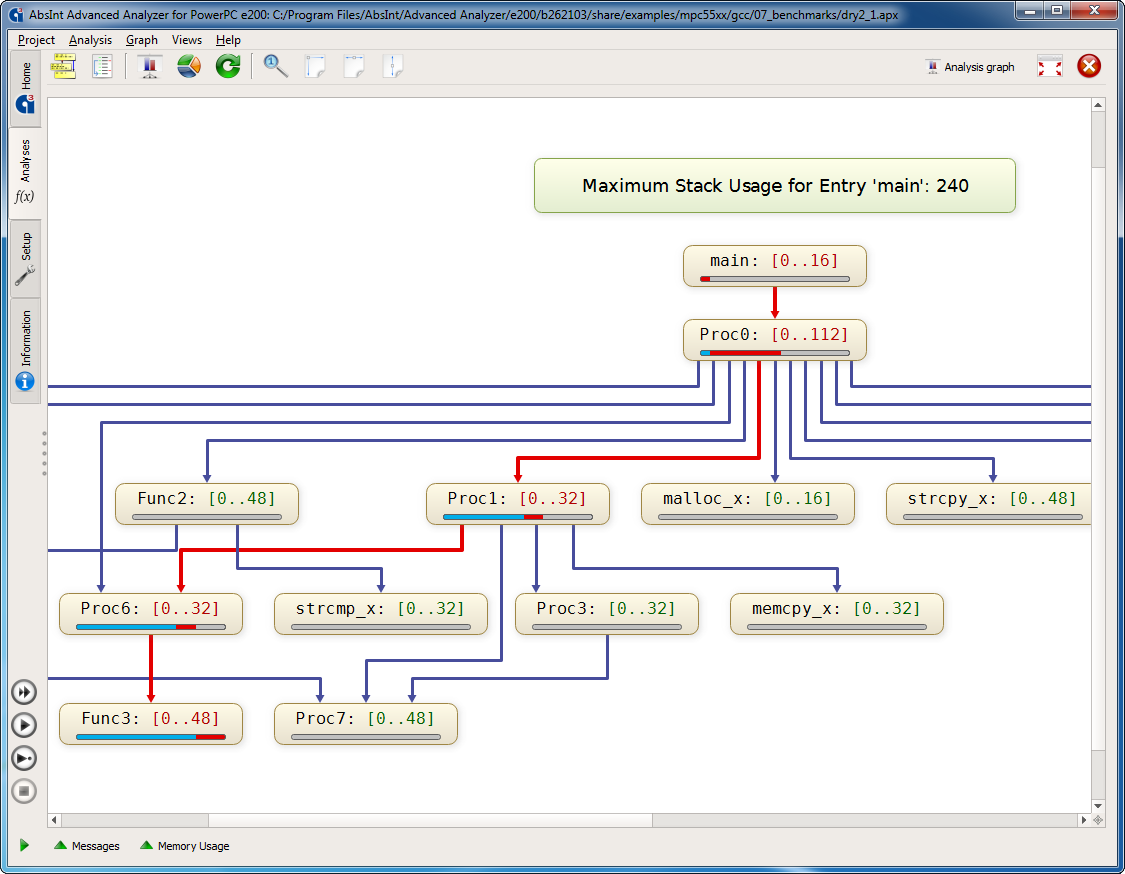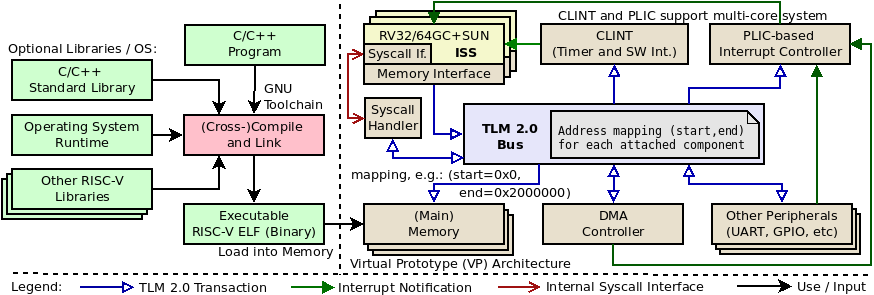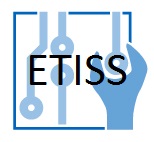Fault Effect Simulation and Analysis for RISC-V (FEAR-V)
FEAR-V is a fast scalable simulation and analysis framework for RISC-V architectures based on QEMU. The generation, simulation, and analysis can be scaled by ISA configuration as well as n-bit permanent and transient faults. The fault injection covers GPR, CSR, instruction, and memory analysis.
The source code of FEAR-V is freely available with all its components and has been published under https://github.com/hni-sct/fear-v.
FreiTest
FreiTest (developed from PHAETON) is an ATPG (Automatic Test Pattern Generation) Framework based on SAT-Solving (Boolean Satisfiability Problem) and BMC (Bounded Model Checking). It generates Test Patterns and Software-Based Self-Tests (SBSTs) for synthesized circuits and is under active development. First results on achieved Fault Coverages have been published on the IEEE ETS2023 conference in Venice under the title "Constraint-Based Automatic SBST Generation for RISC-V Processor Families".
PikeOS Operating System and Hypervisor
PikeOS and PikeOS for MPU are each a real-time operating system and hypervisor for embedded systems. It provides partitioning to separate different applications or guest operating systems from each other. PikeOS is often combined with ELinOS, SYSGO's embedded Linux, which is then run in a partition under the PikeOS hypervisor.
SYSGO issues evaluation licenses in the scope of the Scale4Edge project to interested project partners.
Extensible Compiler (X-LLVM, Seal5)
The Extensible Compiler provides an LLVM-based toolchain to develop C/C++/Assembly programs for RISC-V. It is designed to easily accommodate custom extensions to the RISC-V ISA by supporting the Scale4Edge developed CoreDSL for describing ISA extensions.
Apache License 2.0
A permissive license whose main conditions require preservation of copyright and license notices. Contributors provide an express grant of patent rights. Licensed works, modifications, and larger works may be distributed under different terms and without source code.
aiT and StackAnalyzer for RISC-V
aiT automatically computes safe bounds for the worst-case execution time of tasks in binary executables, taking into account the cache and pipeline behavior of the processor in question.
StackAnalyzer automatically determines the worst-case stack usage of the tasks in embedded applications. It directly analyzes binary executables and considers all possible execution scenarios.
This distribution of aiT and StackAnalyzer can be used for evaluation and research within the Scale4Edge project, but not for commercial purposes (see also the license information in the installation packages). Evaluation licenses and commercial licenses can be obtained from AbsInt.
RISC-V VP
An extensible and configurable RISC-V based Virtual Prototype (VP) implemented in SystemC TLM. The feature set includes support for the RV32GC and RV64GC ISA, privilege levels (M,S,U), virtual memory, SW debug via Eclipse, a HiFive1 configuration and several operating systems including Linux. At UB the RISC-V VP serves as platform for several different research directions (visit https://agra.informatik.uni-bremen.de/projects/risc-v/ for further information and the most recent updates).
MIT
ETISS - Extendable Translating Instruction Set Simulator
ETISS is a C++ ISS (Instruction Set Simulator), which is designed to simulate instructions for a target core on a host computer. It translates binary instructions into C code and appends translated code into a block, which will be compiled and executed at runtime. As aforementioned, it is Extendable, thus it supports myriad level of customization by adopting the technique of plug-ins. ETISS supports varied Instruction Set Architectures (ISAs) according to user needs (see architecture models in ArchImpl/).
See file LICENSE inside GitHub Repo.
CompCert - Formally verified C compiler
CompCert is a formally verified optimizing C compiler. It accepts most of the ISO-C 99 language, with some minor exceptions and a few useful extensions. Its intended use is the compilation of life-critical and mission-critical software written in C and meeting high levels of assurance.
This distribution of CompCert can be used for evaluation and research, but not for commercial purposes (see also the license information in the installation packages). Commercial licenses can be obtained from AbsInt.
